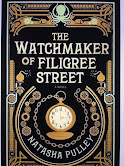Taking a Closer Look at The Beatles Perfect Single by Theresa Gauthier
Let Me Take You Down: Penny Lane and Strawberry Fields Forever by Jonathan Cott
Jonathan Cott’s Let Me Take You Down: Penny Lane and Strawberry Fields Forever is a slim yet detailed look at two iconic Beatles songs, how they were written and recorded and their impact on the world at large.
The songs should be familiar to even the most casual of fans. Recorded as part of the Sgt. Pepper’s Lonely Hearts Club Band sessions, and intended for inclusion on that album, the songs were released early as the Powers That Be at the Record Label were reluctant to wait for the album to be finished. The theory then was that you couldn’t wait too long between releases or you’d be forgotten. It’s ludicrous to think that even by this time people in the business side of music still thought The Beatles might be a flash in the pan, might disappear before they had time to record their masterpiece, and might so alienate their fans by a long stretch of time between official releases that they would never sell another record.
The Beatles didn’t like to include a song on an album if it had been already been released on a single. They worried about the value of it to their fans. Asking someone to pay for a song twice seemed wrong to them. Once these songs saw the light of day, they’d never have been considered for inclusion on the album. Many fans have wondered over the years where in the lineup of songs on Sgt. Pepper these songs would have been placed.
It’s fair to say that Penny Lane wouldn’t exist had John not written Strawberry Fields Forever. John and Paul, though they started out writing together in their early days, would write their songs alone. Once in awhile they would help each other out if something was missing or if one of them was stuck, but for the most part they wrote alone. They did inspire each other, however, and Paul took John’s idea—revisiting their past growing up in Liverpool and setting those memories to music.
Subject matter aside, these songs couldn’t be more different.
Cott describes the fist time John played Strawberry Fields Forever for the other Beatles and their producer, George Martin. He portrays a moment easy to imagine full of admiration and astonishment at the genius of the song. It also makes it easy to see how Paul might have found in John’s song the germ of an idea to tackle the subject matter on his own. Both songs encapsulate and celebrate the Liverpool The Beatles lived in and loved before their fame drew them away, first to London, and then to various places around the world.
The narrative here isn’t spoiled just by our familiarity with it. Instead it’s dear, precious, and enhanced because of the details that are unfamiliar or are elaborated upon.
Cott did a wonderful job, even if every once in a while the turns of phrase and the regurgitation of various song lyrics into part of the prose is at best cringeworthy.
In essence, this book did what every music related book should do. It sent me back to the original record.







Comments
Post a Comment